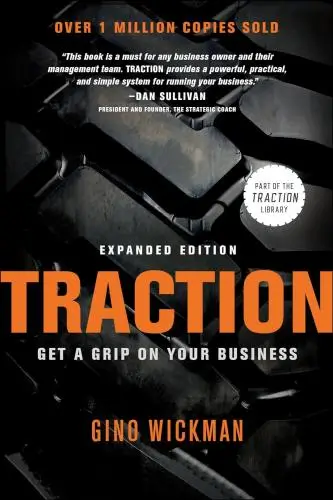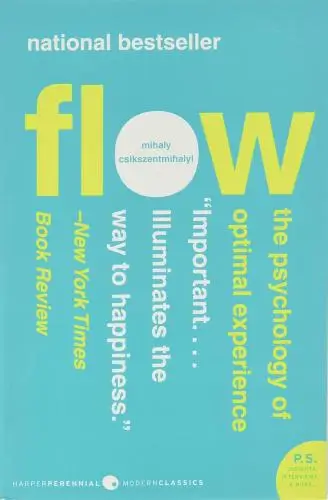
Flow
The Psychology of Optimal Experience
What is Flow about?
Flow by Mihaly Csikszentmihalyi explores the state of optimal experience where one is fully immersed and focused, known as "flow." This book delves into how individuals can achieve this state, leading to increased happiness and fulfillment in various aspects of life. Csikszentmihalyi provides practical strategies and insights on how to cultivate flow in everyday activities, ultimately enhancing creativity, productivity, and overall well-being. A must-read for those seeking to unlock their full potential and find joy in the present moment.
About the Author
Mihaly Csikszentmihalyi was a Hungarian-American psychologist best known for his research on flow, a state of optimal experience where individuals are fully immersed in an activity. His seminal work, "Flow: The Psychology of Optimal Experience," explores the concept's implications for happiness and productivity, influencing fields from psychology to business.
10 Key Ideas of Flow
Set Clear Goals That Have Immediate Feedback
Establishing clear, attainable goals that provide immediate feedback helps in engaging fully with the task at hand. This approach allows for a direct understanding of how well you are doing in real-time, which is crucial for maintaining focus and motivation. The clarity of the goal ensures that you know exactly what is expected, eliminating confusion and allowing for a deeper immersion in the activity. Immediate feedback, on the other hand, serves as a guide, helping to adjust actions on the fly to improve performance and stay on track towards achieving the set objective.
Learn DeeperBreak Down Your Goals: Start by breaking down your larger goals into smaller, more manageable tasks. Each task should have a clear, achievable outcome that you can measure.
Seek Immediate Feedback: Engage in activities or use tools that provide instant feedback on your performance. This could be as simple as tracking your progress in a journal or using an app designed for your specific goal.
Adjust Your Approach Based on Feedback: Use the feedback you receive to make real-time adjustments to your approach. If something isn’t working, don’t be afraid to change your strategy.
Celebrate Small Wins: Recognize and celebrate your achievements, no matter how small. This will help keep you motivated and focused on your larger goal.
- Example
If you're learning to play a new instrument, set a clear goal for each practice session (e.g., mastering a specific scale). Use a metronome app that gives you immediate feedback on your timing, allowing you to adjust as needed.
- Example
For someone trying to improve their physical fitness, setting a goal to run a certain distance within a specific time frame provides a clear target. Using a fitness tracker can offer immediate feedback on pace, distance, and heart rate, enabling on-the-spot adjustments to effort or speed.
Challenge Yourself With Tasks Slightly Above Your Current Skill Level
Engaging in tasks that are just beyond your current capabilities encourages growth and learning. This strategy keeps activities interesting and prevents boredom, as there's always something new to master. The slight discrepancy between skill level and challenge promotes a state of heightened focus and determination, known as the flow state, where time seems to fly by and productivity peaks. It's important that the challenge is not too far out of reach, however, as this could lead to frustration instead of flow.
Learn DeeperSet Incremental Goals: Break down your larger goals into smaller, manageable tasks. Each task should be slightly more challenging than the last, pushing you just beyond your comfort zone without overwhelming you.
Seek Feedback Regularly: Engage with mentors, peers, or use self-assessment tools to gauge your progress. Feedback helps you adjust the difficulty of your tasks to ensure they are always just a bit beyond your current skill level.
Embrace Learning Opportunities: Actively look for new skills to learn or areas to improve in your field. Online courses, workshops, and books are great resources for finding challenges that match your growing skill set.
Reflect on Your Progress: Take time to reflect on what you've learned and how you've grown. This not only boosts your motivation but also helps you identify the next challenge to tackle.
- Example
If you're a writer looking to improve your craft, challenge yourself by writing in a genre you're less familiar with. For instance, if you typically write fiction, try your hand at non-fiction articles or poetry. This pushes you to develop a broader range of writing skills.
- Example
For a software developer accustomed to working with a specific programming language, learning a new language or framework presents a suitable challenge. If you're proficient in Python, for example, diving into JavaScript or exploring a new technology like blockchain can significantly enhance your skill set and keep you engaged.
Eliminate Distractions to Maintain Focus and Engagement
Creating an environment free from distractions is essential for achieving deep focus. Distractions break the continuity of experience, making it difficult to enter or maintain a state of flow. By minimizing interruptions and external noise, you allow your mind to engage fully with the task at hand, leading to increased productivity and satisfaction. This might involve turning off notifications, finding a quiet workspace, or setting specific times for focused work.
Learn DeeperIdentify Your Distractions: Start by making a list of what commonly distracts you. Is it social media notifications, the noise from your environment, or perhaps the urge to check emails constantly? Recognizing these distractions is the first step towards managing them.
Create a Dedicated Workspace: If possible, designate a specific area in your home or office as your workspace. This space should be organized and free from clutter. Let it be known that when you're in this space, you're in 'focus mode'.
Set Clear Boundaries: Inform friends, family, or colleagues about your focus hours. Ask for their cooperation not to disturb you during these times unless it's an emergency. This sets a clear boundary and helps minimize interruptions.
Use Technology Wisely: Turn off non-essential notifications on your phone and computer. Consider using apps that block distracting websites during your work hours. Technology should aid your focus, not detract from it.
Schedule Breaks: Integrate short breaks into your work schedule. This can help prevent burnout and maintain high levels of focus throughout your workday. Use this time to step away from your workspace, stretch, or do a quick meditation.
- Example
Imagine you're working from home and find yourself constantly distracted by household noises. To combat this, you invest in a pair of noise-cancelling headphones and establish a quiet corner in your home as your dedicated workspace. You also communicate to your household that when you're wearing these headphones, you're in deep work mode and shouldn't be disturbed.
- Example
You notice that every time a notification pops up on your phone, you lose track of what you were doing. To address this, you decide to turn off all social media notifications during work hours. Additionally, you download a website blocker to prevent you from wandering onto distracting sites. This way, you create a digital environment that supports sustained focus.
Transform Routine Tasks by Setting New Challenges
Even mundane tasks can be transformed into opportunities for flow by introducing new challenges or finding novel ways to approach them. This could mean setting time limits to complete routine work more quickly or finding more efficient methods to accomplish daily tasks. By continuously seeking ways to improve and challenge yourself, even the most ordinary activities can become sources of satisfaction and engagement.
Learn DeeperIdentify Routine Tasks: Start by making a list of your daily or weekly tasks that feel mundane or routine. This could be anything from doing the dishes, answering emails, to commuting.
Set Personal Challenges: For each task, set a small, personal challenge. If it's answering emails, challenge yourself to do it in half the time without sacrificing quality. For physical tasks like cleaning, see if you can find a more efficient method or order to do them in.
Track Your Progress: Keep a simple journal or note on your phone where you jot down the task, the challenge you set, and how it went. This will not only motivate you but also help you see your improvements over time.
Reward Yourself: When you meet a challenge, give yourself a small reward. This could be a five-minute break, a piece of chocolate, or a moment to step outside for some fresh air. It reinforces the positive behavior.
Reflect and Adjust: At the end of each week, take a few minutes to reflect on the challenges you set and how they made you feel. Adjust them as needed to keep them engaging and slightly out of reach for continuous improvement.
- Example
Turning the routine task of filing reports into a game by setting a goal to complete them 10% faster each time, while maintaining accuracy. To make it engaging, you could track your 'high scores' in a spreadsheet.
- Example
If you have a daily commute, challenge yourself to find new routes that might save time or offer more interesting sights. Alternatively, use the time to listen to educational podcasts or audiobooks, turning a mundane drive into a learning opportunity.
Deeper knowledge. Personal growth. Unlocked.
Unlock this book's key ideas and 100+ more. Learn with quick, impactful summaries.
Read Full SummarySign up and read for free!
Flow Summary: Common Questions
Experience Personalized Book Summaries, Today!
Discover a new way to gain knowledge, and save time.
Sign up for our 7-day trial now.
No Credit Card Needed

Similar Books

The Millionaire Fastlane
MJ DeMarco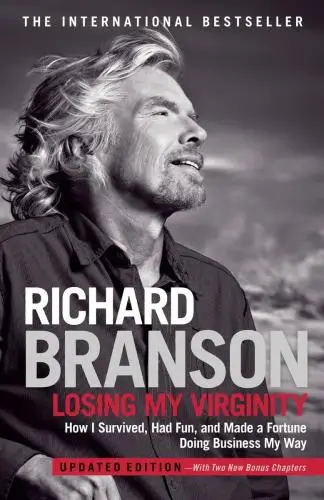
Losing My Virginity
Richard Branson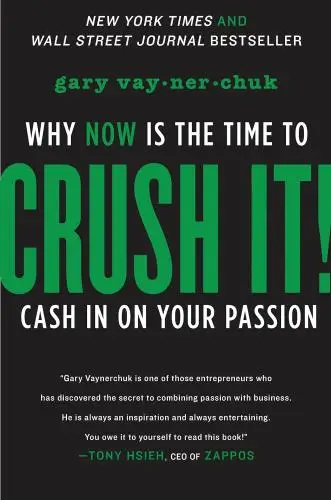
Crush It!
Gary Vaynerchuk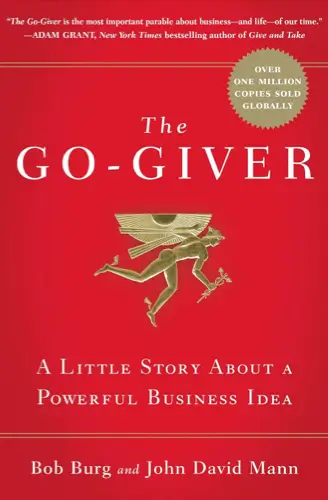
The Go-Giver
Bob Burg
Range
David Epstein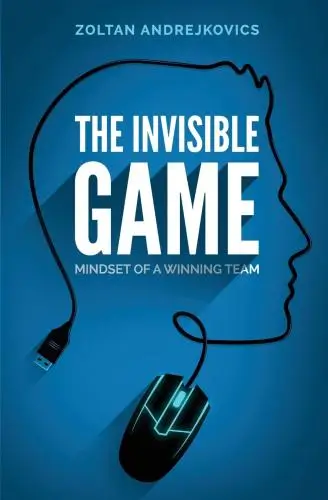
The Invisible Game
Zoltan Andrejkovics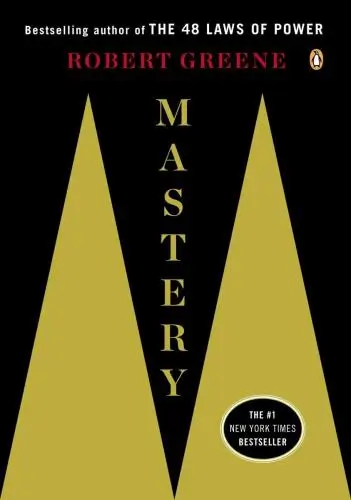
Mastery
Robert Greene
How Will You Measure Your Life?
Clayton M. Christensen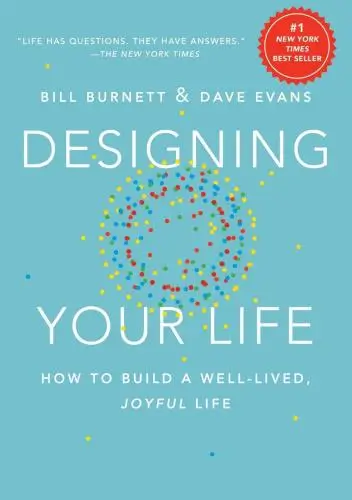
Designing Your Life
Bill Burnett
Lean In
Sheryl Sandberg
StrengthsFinder 2.0
Gallup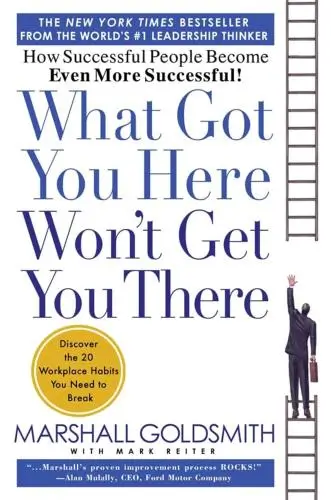
What Got You Here Won't Get You There
Marshall GoldsmithTrending Summaries

Peak
Anders Ericsson
Never Split the Difference
Chris Voss
Smart Brevity
Jim VandeHei
The Psychology of Money
Morgan Housel
The First 90 Days
Michael D. Watkins
Atomic Habits
James Clear
Thinking, Fast and Slow
Daniel Kahneman
The Body Keeps the Score
Bessel van der Kolk M.D.
The Power of Regret
Daniel H. Pink
The Compound Effect
Darren Hardy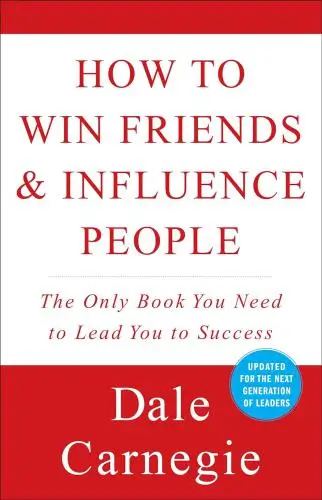
How to Win Friends & Influence People
Dale Carnegie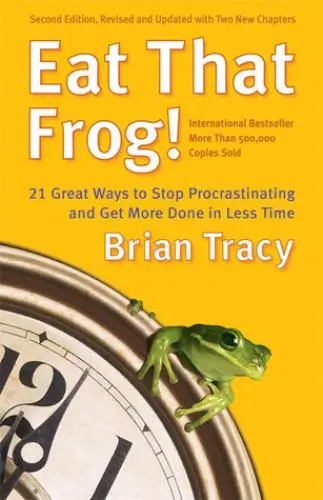
Eat That Frog!
Brian Tracy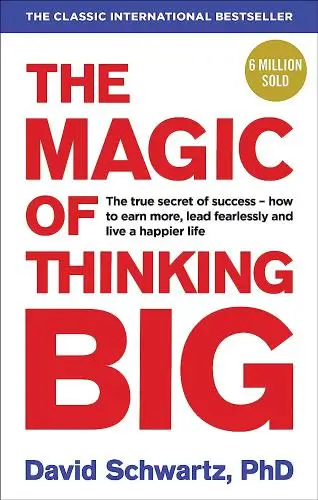
The Magic of Thinking Big
David J. Schwartz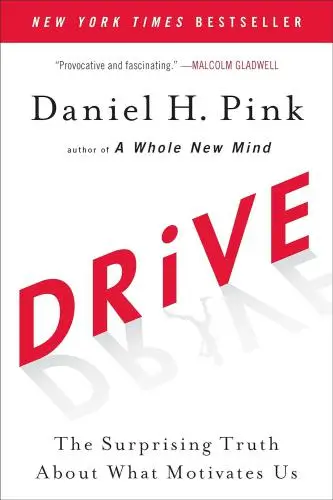
Drive
Daniel H. Pink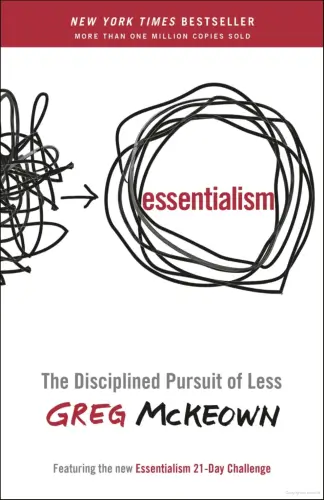
Essentialism
Greg McKeownNew Books

The Millionaire Fastlane
MJ DeMarco
Losing My Virginity
Richard Branson
Venture Deals
Brad Feld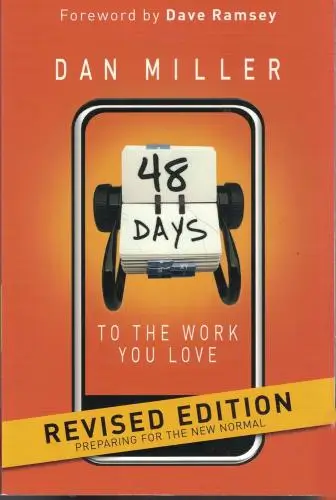
48 Days to the Work You Love
Dan Miller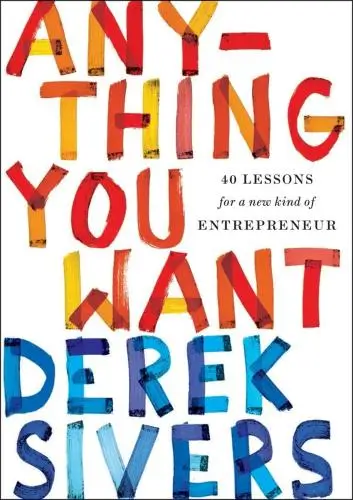
Anything You Want
Derek Sivers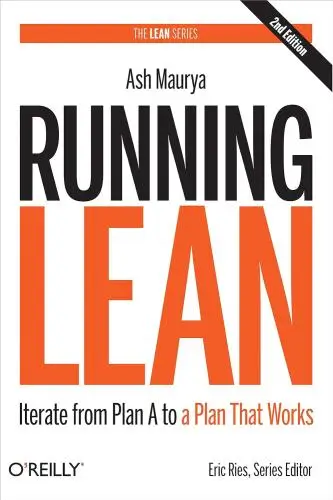
Running Lean
Ash Maurya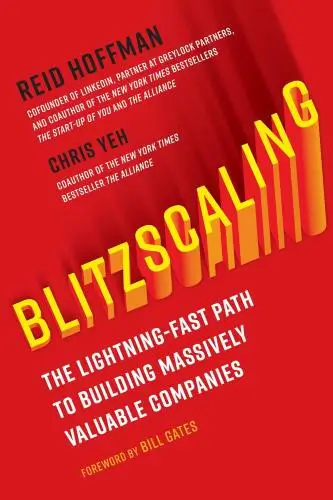
Blitzscaling
Reid Hoffman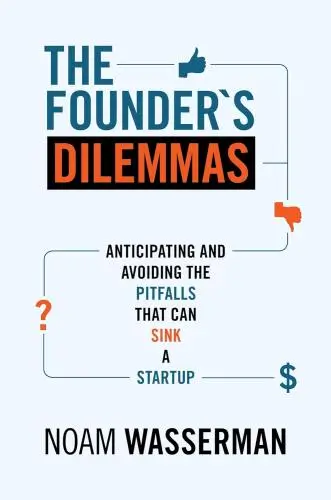
The Founder's Dilemmas
Noam Wasserman
Founders at Work
Jessica Livingston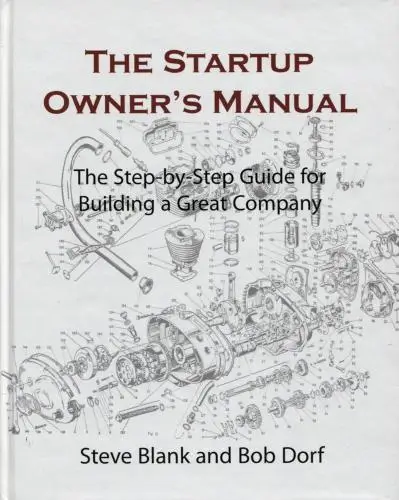
The Startup Owner's Manual
Steve Blank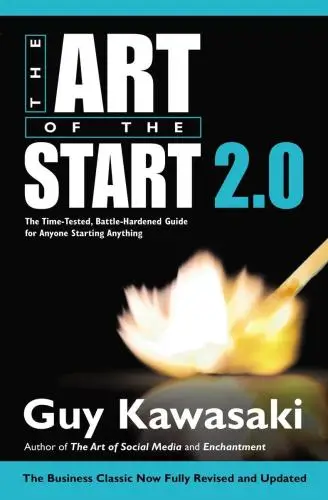
The Art of the Start 2.0
Guy Kawasaki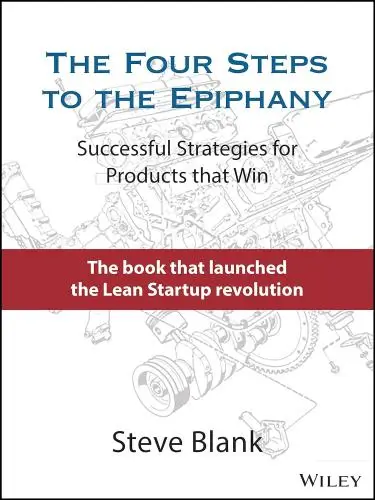
The Four Steps to the Epiphany
Steve Blank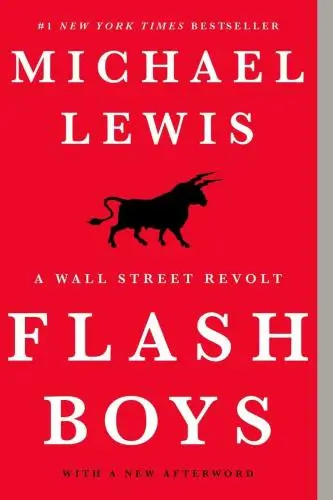
Flash Boys
Michael Lewis
Crush It!
Gary Vaynerchuk